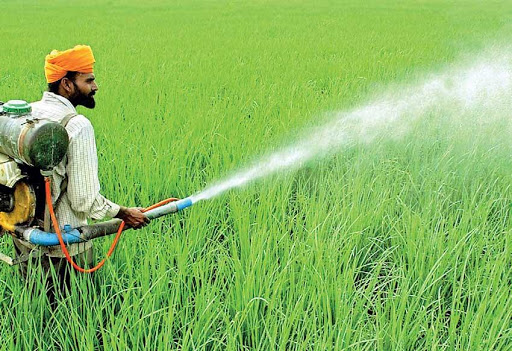President to make Sri Lanka the first country in the world to end use of chemical fertilizers completely
Sri Lanka President Gotabaya Rajapaksa stressed that he will take up the challenge of making Sri Lanka the first country in the world to eliminate the use of chemical fertilizers, without taking a step back on the decision to end the use of chemical fertilizers in the country.
The President said the fact that no country in the world has abandoned the use of chemical fertilizers is not an obstacle to achieve this goal. The President urged everyone to get together to educate the farmers to create a healthy generation by taking it to the field, without limiting it to mere talks.
Steps already taken will not be reversed…
President to make Sri Lanka the first country in the world to end use of chemical fertilizers completely….
• Let’s take action without limiting ourselves to mere talks…
• Will promote use of organic fertilizer production at the district level …
The President made this observation at a discussion held at the Presidential Secretariat this morning (29) to raise awareness on the ban on import of chemical fertilizers, pesticides and herbicides and their use.
“The government must ensure the right of the people to a toxic-free diet in order to create a healthy and productive citizen. It is also a pledge made in the National Policy Framework “Vistas of Prosperity and Splendour” to accelerate the production of organic fertilizers in the next decade so that only organic fertilizer will be used in the agricultural field of Sri Lanka.
The 20-member Cabinet Memorandum was presented to the Cabinet of Ministers recently with the aim of creating a green socio-economic model of sustainable solutions to climate change, laying the foundation for making this a reality.
Sri Lanka has spent USD 221 million in 2019 on chemical fertilizer imports. With the rise in prices of oil, that cost will be increased by an amount between USD 300-400 million.
President Rajapaksa pointed out that despite the large expenditures on chemical fertilizers, herbicides and pesticides, there has been no qualitative increase in agricultural production.
Reduced yields as a result of infertility of soil and the destruction of biodiversity can be witnessed. The use of chemical fertilizers and pesticides pollutes rivers and streams and poses a serious challenge to quality drinking water supply. The Government expenditure with regard to a number of non-communicable diseases, including kidney disease and cancer, is rising every year. The loss of livelihoods of the people living in rural areas, deteriorating health conditions and the declining of people’s productivity have become challenges the country is facing today.
Issues and complications may occur at the launch of the programme. But the implementation of a sustainable green socio-economic pattern should not be delayed. We need to identify the perfect solutions to the problems that emerge. Farmers may assume that giving up on chemical fertilizers will reduce the yield. If it does, the President guaranteed that the Rs. 50 billion spent annually on chemical fertilizers will be used to recover their loss.
Personnel with a proper training and knowledge are required to implement the programme. The warm feeling towards the country and the environment is equally important. The President also said that there is no obstacle for those who are reluctant or have different ideas about the programme to leave it at the very beginning. The President said that he was prepared to personally reach out to the farming community to overcome the challenges.
The President also stated that the government will directly intervene to provide all necessary facilities to encourage the production of organic fertilizer at the district level.
Objections could arise in this regard as it is a sensitive matter for most engaged in agriculture. Mr. Basil Rajapaksa, Head of the Presidential Task Force for Economic Revival, noted that the goal could be easily accomplished through the contribution of religious leaders, organizations affiliated to farmers, professionals, researchers, government officials, the media and all other relevant parties.
Mr. Basil Rajapaksa highlighted the need to expand the organic fertilizer market in a manner that would be convenient for the farmer.
MP Ven. Athuraliye Rathana Thero, Dr. Ven. Kirinde Assaji Thero, Minister Mahindananda Aluthgamage, State Ministers D.B. Herath, Ajith Nivard Cabraal, S. Viyalendran, MPs Manjula Dissanayake, Anupa Pasqual, Secretary to the President P.B. Jayasundera, government officials, researchers, organic fertilizer manufacturers and representatives from organizations affiliated to farming were present at the discussion. – President’s Media Division

